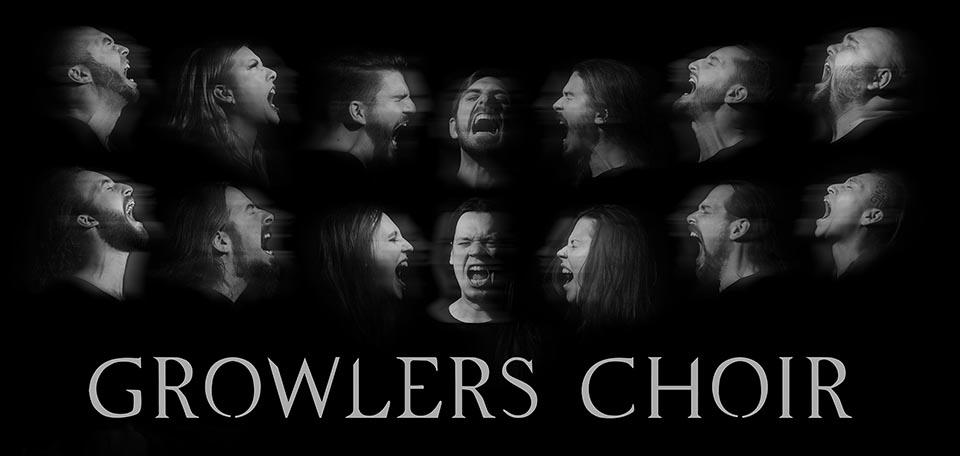A two-year project at the University of Huddersfield is taking a deep dive into the challenging world of Extreme Metal music to discover how vocal techniques from the cult genre work artistically and scientifically.
Dr Eric Smialek, Senior Research Fellow, Department of Music & Design Arts, has been a fan of Extreme Metal since growing up in his native Canada. Sub-genres like Black and Death Metal come under the Extreme Metal umbrella, with bands like Death and Possessed producing early examples of the genre as far back as the 1980s.
But it is the terrifying low growls of the vocal techniques used in Extreme Metal that Dr Smialek is investigating for his project Extreme Metal Vocals: Musical Expression, Technique, and Cultural Meaning, which is being backed by £190,380 worth of funding from UK Research and Innovation (UKRI).
"It was a style of music I was really interested in as a fan and as a musician. I wanted a way into it," states Dr Smialek. "As part of my undergraduate work at the University of British Columbia in 2005, I decided to apply some of what I had learned in my Physics of Music class.
"Extreme metal and its vocals were something that had not been written about much at that stage. But in that class, we were learning all sorts of things about acoustics, perception and science. As part of my term paper, a friend recorded my voice doing extreme metal vocal techniques as an amateur.
"We segmented them into low, middle and high types but, listening back to it, I felt that the main difference between them was in the vowel sounds - that was the main difference between my high, middle and low screams. What was cool was that in physics class, we were learning about visualisations of sound called spectrograms that linguists have used for years to study the acoustics of speech and vowels.
"There was an amazing moment for me when I realised that there were decades of research from linguistics, with all sorts of technology and concepts I could apply to a genre of music that people had not been talking about at all. It felt like a eureka moment. I could start by sampling my own voice and applying scientific methodologies from linguistics to it.
"The early extreme metal bands had not grown up listening to extreme metal, so their vocalists have very individual styles. It's interesting and fun to chart all the nuances, like a map, and see how different conventions developed and what features of their sounds set them apart from each other."
Dr Smialek's project will synthesize linguistic, acoustical, historical and musicological studies of vocal techniques used in Extreme Metal. He is presenting at conferences in Montreal and Minneapolis in 2023, and is co-hosting a workshop in Thessaloniki, Greece with Pierre-Luc Senécal, founder of Dremeka Choir, (a.k.a. the Growlers Choir).
America's Got Talent takes notice
The choir shot to prominence in 2022 when they performed 'Toxic' by Britney Spears in the extreme metal style on America's Got Talent, shocking and impressing the judges, including Simon Cowell.
The Growlers' Choir were a surprise package on America's Got Talent with their take on Britney Spears' popular hit number "Toxic".
"A workshop on composing and arranging for extreme metal vocals and choir sounds niche. But learning about the vocals and all the things you can do with them musically can be helpful if you are an avant-garde composer, or a metal musician wanting to do something different. There is overlap between how musicians normally overdub voice recordings in a studio and how you can also layer individual voices with an extreme metal choir."
The project will see Dr Smialek work closely with the University's Dr Jan Herbst, a Reader in Music Production, providing collaborative research opportunities as well as valuable professional development with funding and project management.
Vocal techniques can be applied across music
But he also hopes to devise a technological offshoot from studying extreme metal vocals that will help musicians both inside and outside of the genre.

"I'm working with specialists in music technology here to try to come up with an app that I want people to play with to write music, or to communicate between band members or different musicians. Imagine being a drummer and being able to show a vocalist exactly what kind of shifting growl or scream sounds you have in mind.
"As a listener, it opens you up to new sounds but as a musician it gives you nuances that you can then communicate to other musicians to help write music or try new things.
"In the last four or five years, there have been more publications and it feels like people are really starting to talk about this stuff a lot more. There was hardly anything when I began in 2005."






